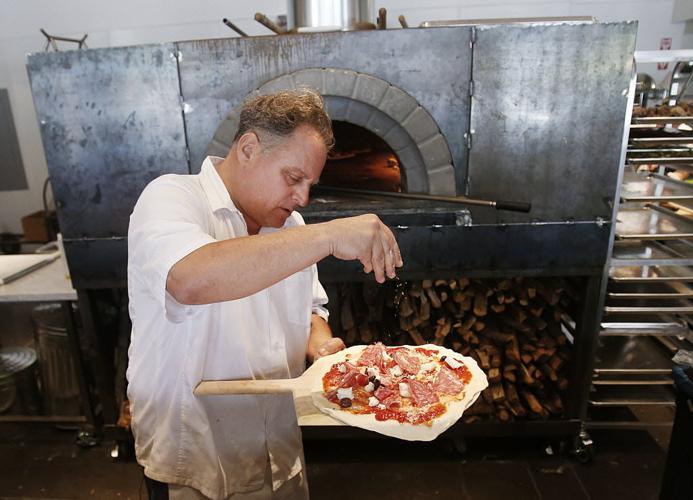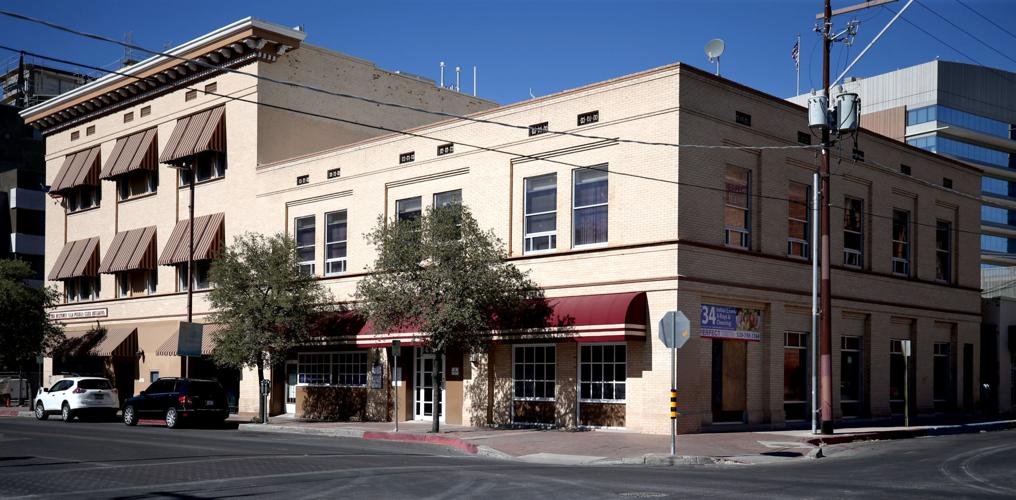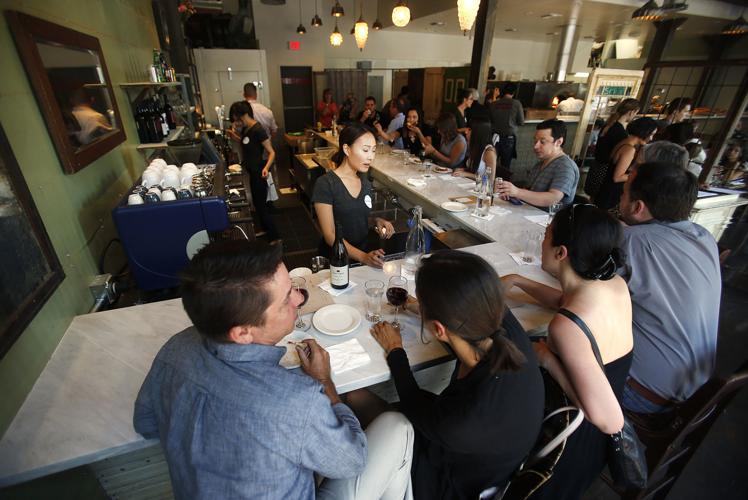Nearly two years after nationally acclaimed restaurateur Chris Bianco exited the Tucson market, the Rio Nuevo board of directors is rolling out the red carpet in hopes of luring him back.
The taxpayer-funded downtown redevelopment agency agreed to kick in $75,000 in rent abatement as an enticement for Bianco to open a restaurant at 123 S. Stone Ave., a Peach Properties building being developed with Marcel Dabdoub as part of the broader Peach & Dabdoub project.
“It’s part of the same strategy to find reasons for people to come downtown. A restaurant by Bianco is one of those,” said Rio Nuevo Board Chairman Fletcher McCusker. “We are hoping that our incentives encourage him to come back.”
Bianco operated his namesake pizzeria at 272 E. Congress St., for two years before closing in September 2016, citing challenges that included the lack of parking, not being able to create patio dining and construction of the AC Hotel by Marriott behind the restaurant. He said at the time that the hurdles didn’t allow him to deliver the dining experience he wanted to bring to Tucson.
Bianco last week would not comment on specific plans for his return, but said he is “doing everything I can to get back to Tucson.”
“I came to Tucson and I never wanted to leave,” he said, adding that he wanted “to find the right situation.”
The rent incentive is part of Rio Nuevo’s planned $4.4 million investment through tax rebates and leaseback incentives in the Peach & Dabdoub project, which includes renovating the old Bring’s funeral home at 236 S. Scott Ave.; the former Chicago Store at 130 E. Congress St.; and the Arizona Hotel residential project on North Sixth Avenue. And it’s part of Rio Nuevo’s bigger mission to reinvigorate and reinvent downtown, McCusker said.
He already sees evidence of downtown becoming a thriving dining and entertainment district in the image of Portland, Oregon; San Diego; and Austin, Texas. Having destination dining and entertainment venues is key.
“It’s all related to creating a desirable location,” said the Tucson businessman, whose portfolio includes Sinfonia HealthCare and Providence Service Corp. “In 2010 when I moved downtown, there were three restaurants; there are now over 80. It’s (now) the place you bring your friends and family when you talk about going out. We want to keep a high bar, and in our region there is nobody who represents that better than Chris Bianco.”
The James Beard Award-winning chef — think Academy Award for foodies — has two pizzerias, a sandwich shop called Pane Bianco and the farm-to-table Italian restaurant Tratto, all in the Phoenix area.
Bianco has said he has no plans to resurrect his pizza restaurant in Tucson, where his protégé Scott Girod opened Anello pizzeria in the downtown Warehouse Arts District last October.
But he indicated within months of closing Pizzeria Bianco that he was interested in returning. In late 2016, Bianco signed a letter of intent with Peach Properties for the 123 N. Stone Ave. space. Peach Properties leasing agent and co-owner Patricia Schwabe said last week that talks with Bianco have been ongoing.
With last week’s Rio Nuevo commitment, Schwabe said they are ready to begin work on the tenant improvements.
McCusker said Bianco would carry on the high bar set by Janos Wilder when he opened Downtown Kitchen + Cocktails on South Sixth Avenue in 2010, not far from where he had started his restaurant career in the 1980s. The return of the nationally celebrated chef got the ball rolling for others to take a chance on downtown including the Fenton brothers (Tyler and Zach), who renovated the old Reilly’s Funeral Home on East Pennington Street and opened Reilly’s Craft Pizza & Drink; and Brandon Katz, who took over the space at 350 E. Congress St., not far from Rialto Theatre, and opened Obon / Sushi + Bar + Ramen. Richard Oseran, whose family owns Hotel Congress, upped his investment in downtown in 2008 when he opened Maynards Market & Kitchen on North Toole Avenue.
“These are all sought-after destinations,” said McCusker, who includes in that mix Suzana Davila’s Café Poca Cosa at 110 E. Pennington St., a restaurant with a reputation that far exceeds Arizona’s borders.
Three years ago, Tucson’s restaurant scene got an even bigger boost when the United Nations Educational, Scientific and Cultural Organization — UNESCO — named Tucson the country’s first UNESCO City of Gastronomy.
“All of these things, in our mind, are related to kind of a high-end food destination,” McCusker said.
On the entertainment front, in November, Rio Nuevo is sponsoring the third annual Dusk Music Festival, which will move from Rillito Park to downtown’s Armory Park. The festival will be held Nov. 10-11.
“We’ve always wanted to move downtown. We think that’s the best place for our target demographic,” said Page Repp, one of the festival’s founders and coordinators. “It seems like a natural fit. It’s a natural evolution for what we were trying to do.”
Additionally, Rio Nuevo is flirting with the idea of bringing in an arena football team. At its mid-May meeting, the board set aside $400,000 for capital improvements to the Tucson Arena at the Tucson Convention Center, where the Tucson Roadrunners play hockey from October to May. The arena football season is in spring and summer, which McCusker said could bring as many as 40,000 people downtown during the city’s traditional slowdown.
“Every time someone comes downtown, they spend on average $30, which generates more tax revenues,” he said.






